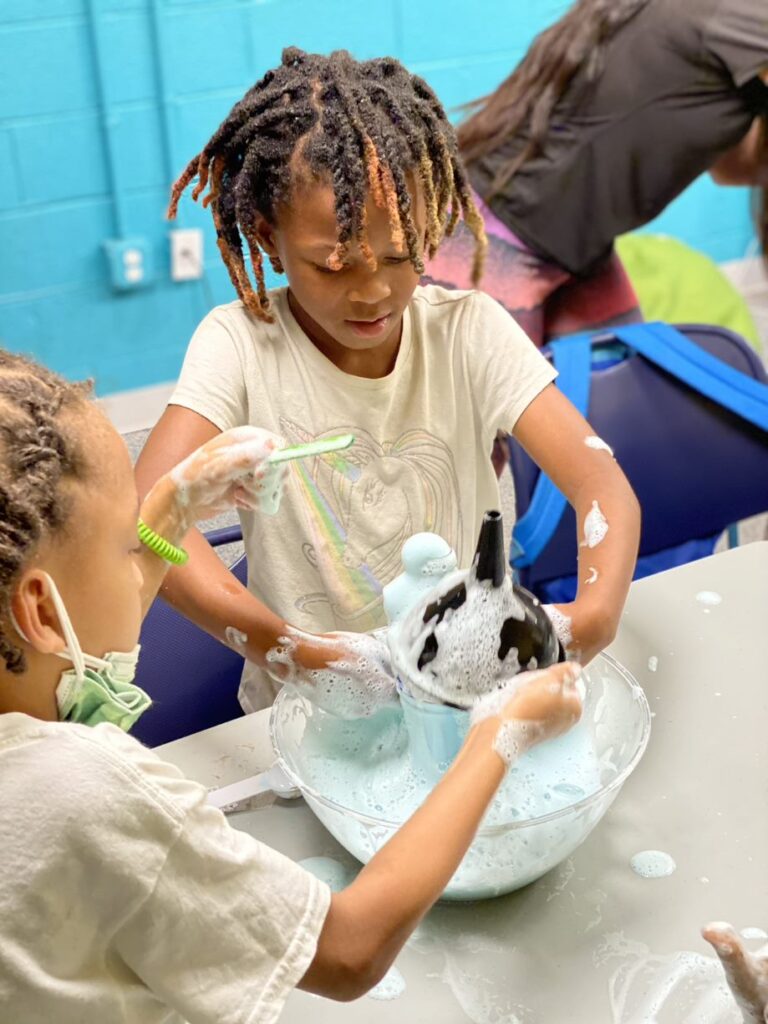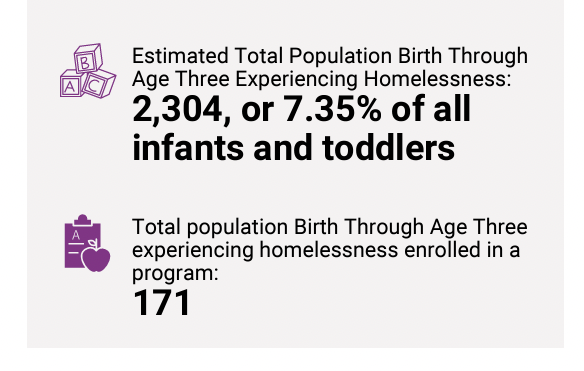Horton’s Kids is an education nonprofit dedicated to helping youth living in poverty graduate from high school. The organization was established in 1989, and was initially solely volunteer-run. After years of work and presence in one neighborhood, Horton’s Kids has expanded, now operating in two service centers and a community church.
Wellington Park and Stanton Oaks neighborhoods are in Ward 8, where Horton’s Kids is based. The 92% Black ward has been systemically disinvested in and presents kids with a set of obstacles in obtaining a high school diploma, according to Erica Ahdoot, Horton’s Kids’ executive director.
The nonprofit offers literacy support, tutoring sessions, mentors and community involvement.
The organization’s name is inspired by the Dr. Seuss book, “Horton Hears a Who.” The children’s story follows an elephant who listens to a town of tiny people living on a clover, who no one else can seem to hear. Metaphorically, Ahdoot said Horton’s Kids represents the elephant and they want the residents and students they serve to be heard and seen.
Street Sense Media caught up with Ahdoot to learn more about the nonprofit and its work in the Wellington Park and Stanton Oaks neighborhoods.
The following conversation has been edited for length and clarity.
How did you become involved with Horton’s Kids and what you do with the organization?
I’m actually a social worker by training. I’ve always done community-based, place-based work, primarily in New York City. I eventually came back to the D.C. area, which is where I was born and raised, and got to know Horton’s Kids and felt like it was the perfect marriage between everything I had done previously.
What motivated you to get into this kind of work in the first place? How did you end up doing this?
I never really talk about it, just for the first time last week, I kind of explained my personal connection to it. I actually am a first-generation American and my family came from very limited means in another country. My grandmother was very young, raised five boys on her own. In her mind, a ticket out was educational opportunity. That was the way to overcome the barrier that they were dealing with. I think that early on that was really embedded in me that it is important to take opportunity seriously, and that it can really change the game for individuals and for entire families and entire generations.
What makes the neighborhoods you work out of unique?
I think Wellington Park is interesting. When I first started I was alarmed at the condition of the buildings and of the neighborhood. A lot has changed.
Still, you see a really high level of unemployment, you see a lot of people needing to get involved in this sort of alternate economy to make ends meet. That is something that triggers a lot of potential violence. I’ve always worked with kids and families, and I think children that are living in Wellington Park do have a high level of exposure to trauma, to violence, to things that really impact their lives. And I remember one time somebody came in and said, “Okay, so what percentage of children would you estimate have been impacted by trauma?” We sat around the table with some of our staff who had worked in the neighborhood, and said, 100%, there’s no question.
Tell me a little bit about what you think education can do for people. Is it really the ticket out?
What education does for people is that it gives you more choice. Having more choice with what you want to do, and what direction you want to go in your life is something that is universally beneficial. When you’re very limited, or your pathways are narrow, for some folks, there’s no real way to see yourself into something that feels successful. That can be really hard. Having that foundation, having strong literacy skills, knowing how to write, how to communicate, even the skills that come from the math and science side, all of that together, I think really opens up your world to consider possibilities that you could have access to. That’s why it’s such an essential thing.
How does Horton’s Kids offer those educational opportunities?
There’s three key things in our approach. One is obviously the provision of direct services and programs. Many of them are very youth focused, over the years that we’ve gotten more intentional about how we can directly support adults and caregivers with programming, not just services or essential items or things like that.
Another way is to develop strategic partnerships with organizations, corporations, entities around the city that can offer kids exposure, opportunities that can bring additional resources directly into the neighborhood. Whether they be health care resources, or mental health resources.
Then the third way really is to advocate. That’s also not for us directly, but also we partner with parents and adults in the neighborhood, working closely with city council or with the district attorney’s office or thinking about how to be more impactful in your child’s school, navigating the special education system. There’s a lot of ways in which if you have the information, the tools, and the strategies to navigate, you can get results more quickly.
You mentioned there’s been a lot of growth. What kind of change has happened during the past two years?
The biggest way it showed up in the organization is the expansion into a second neighborhood. For 30 years we were based in Wellington Park, just an eight minute walk away from the Stanton Oaks neighborhood. Stanton Oaks and Wellington Park actually have the same property manager. They know of each other, but they have a historically antagonistic relationship. Operating in Wellington Park, even though it was just a few minutes away did not mean that [Stanton Oaks] kids and students had access to those resources and supports and programs.
We’ve been in dialogue with the neighborhood around what are the kinds of things you want to see, we just did a series of focus groups, and they were talking about having more Horton’s Kids, more days of programming, more opportunities, which is just great for us, because that means that whatever we’re doing, you feel like you’re benefiting from and it’s impactful. Ideally, over the next year or two we want to get to 150 children enrolled in our programs, which means that translates into hundreds of people because once a child enrolls it’s the entire household. And once a child enrolls in Horton’s we make a 13 year commitment.
Late this past year, December of 2021, [we] purchased a community church that was for sale, exactly a half mile from both neighborhoods. It’s equidistant. It’s also what’s considered as neutral territory. On a block that does not have any specific affiliation with any neighborhood in SE, and that’s crucial in terms of making it a space that feels safe, welcoming, that we can bring in additional neighborhoods and students and families so that we can expand our partnerships and expand the direct service work that we also do. So within that half mile radius, there’s also 16 additional neighborhoods that could potentially be served.
Are there any success stories or individuals you can share, who you’ve seen graduate and move through Horton’s in an impactful way?
Our graduate who is at a law firm this summer, she actually has a full ride to Vassar College and is now home and doing this internship over the summer. I called her last week, and I said, “we’re going to the law
firm to present to all the summer interns and a new staff member. Do you want to join?” And she’s like, “Sure.” We co-presented in their big conference room. It was awesome. And she mentioned to everybody, just like hot off the press, I want to go to law school. She had like, five people come up to her afterwards and say, like, let me talk, I’ll coach you through it. Let me tell you all the good, the bad, and the ugly with all that.
We have another person who is, you know, she really credits the organization for helping her to graduate from high school, and sort of supporting with life lessons and success and thinking about her pathway beyond graduation. She’s continuing to be a part of Horton’s Kids in the Wellington Park community by working as our Community Resource Manager, which is awesome. And she’s that person who the kids show up and see her and just because of her presence, like a smile just will come across your face, just a wonderful, warm, positive presence that I think is doing tremendous things for the kids and families.








